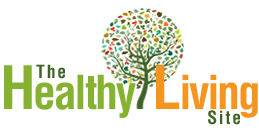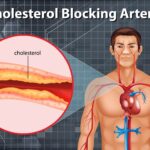Just about everybody has heard about cholesterol. In fact, in some movies it’s even used as a joke… but what is cholesterol really?
Most people know that cholesterol levels shouldn’t be too high but don’t really know what it is. Some think it’s fat and others don’t have a clue. Cholesterol is a waxy substance that is produced in the body by the liver. You can also get cholesterol by eating foods high in cholesterol.
For years, there was a misconception that eating foods such as eggs and red meat caused one to get high cholesterol levels. Latest studies have shown that this is a fallacy. Dietary cholesterol is not the main reason we have high cholesterol levels.
Eating foods that cause inflammation in the body and foods that are high in transfat is what causes our cholesterol levels to rise. That is why people who are on the paleo diet and eat a lot of eggs and meat usually do not have high cholesterol levels but others who eat the usual food have high cholesterol levels. It is the type of food we eat that matters.
When your body in inflamed, your liver produces cholesterol to help cope with the toxins in your body. Most of these toxins are introduced into the body by eating foods that are highly detrimental to the body.
Processed foods, junk food, foods high in sugar, dairy products, white flour products, etc. all wreak havoc in our bodies. To combat the negative effects of these foods, the liver produces cholesterol. In excess, the cholesterol starts to produce plaque which will clog up the arteries.
You can imagine your arteries as a drain pipe in your bathtub. If the pipe is not cleaned and treated, there will be a build-up of foreign material such as hair, dirt, bits of soap, etc. Once the pipe is clogged, the water is unable to drain out and starts pooling at your feet.
In the same way, once the plaque starts blocking your arteries, the blood is unable to travel to the brain. When this happens, you may feel dizzy or get a stroke. Depending on which artery is blocked, you may even get a heart attack. This should tell you how important it is to keep your arteries clear.
In order to do this, your cholesterol levels must be within the acceptable range. Only a clean diet and exercise can achieve this. While medication may help to alleviate the problem, it is not a long term solution. You are looking at a lifestyle change here. That is the only way to keep high cholesterol levels at bay.
It’s easy to get confused about what cholesterol is. After all, there is good cholesterol and bad cholesterol. There are also triglycerides and very low density lipoproteins. It all seems so complex but it’s really pretty straightforward.
- Triglycerides
This is fat. Normal fat. Your body stores fat when you overindulge in food and you do not burn off the excess calories. Fat is merely stored energy. If you use up more energy than you consume, you will burn off your fat. This is inevitable.
- Low density lipoproteins (LDL)
This is the bad cholesterol that everyone talks about. It has the most potential to cause heart disease and arterial blockages. Consumption of inflammatory foods such as those mentioned earlier and foods cooked with hydrogenated oils will raise your LDL levels.
- High density lipoproteins (HDL)
This is good cholesterol that protects the body against the harmful effects of bad cholesterol. You can get good cholesterol in your system by eating foods such as spinach, avocados, etc.
- Very low density lipoprotein (VLDL)
This too, is a type of bad cholesterol.
The best thing that you can do is go to your doctor and get a blood test done. Your doctor will show you the breakdown in the readings and tell you exactly what your cholesterol levels are. This will serve as a roadmap and you will know what you need to do to remedy the situation. You can lower your blood cholesterol levels if you clean up your diet and exercise regularly. It all starts with you… So, start today.






